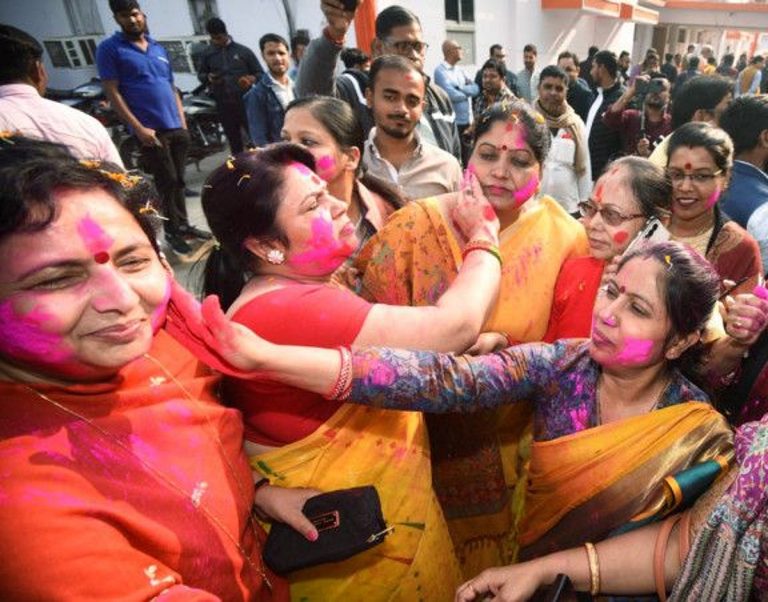Rhea Chakraborty’s Case: Media Ethics Under Scrutiny
The media landscape in India has faced significant scrutiny, particularly in high-profile cases that capture public attention. One such case is that of Rhea Chakraborty, an actress who became the target of intense media scrutiny following the death of her partner, Sushant Singh Rajput. Despite being cleared of any wrongdoing by the Central Bureau of Investigation (CBI), Chakraborty’s experience highlights the darker aspects of sensationalist journalism.
The Media Frenzy
In the wake of Rajput’s tragic death, various news channels launched a relentless campaign against Chakraborty. The coverage often crossed ethical boundaries, with journalists making baseless accusations and engaging in character assassination. This was particularly evident in the comments made by some female journalists, who perpetuated harmful stereotypes about women in relationships. Such remarks not only lacked evidence but also contributed to a narrative that painted Chakraborty as a villain.
Accusations and Misrepresentation
Chakraborty was accused of drugging Rajput to maintain control over him, a claim that was widely circulated without substantial proof. The media frenzy escalated to the point where her family was also implicated, with her brother being labeled as a drug addict. One particularly sensational moment involved a journalist claiming to possess incriminating WhatsApp chats, linking Chakraborty to a broader drug investigation that ensnared several figures in the Bollywood industry. This narrative was further fueled by a sensationalist portrayal of their conversations, which were misinterpreted as coded drug references.
The Impact of Sensationalism
The consequences of this media trial were severe. During a time when the world was grappling with the COVID-19 pandemic, Chakraborty faced not only public vilification but also personal crises, including her father’s health emergency and the loss of her home. Instead of receiving empathy, she was subjected to a relentless barrage of criticism and speculation. The media’s exploitation of Rajput’s death for ratings exemplifies a troubling trend where journalistic integrity is sacrificed for sensationalism.
Lack of Accountability
Despite the CBI’s findings that cleared Chakraborty of any involvement in Rajput’s death, many media outlets have failed to retract their damaging statements or issue apologies. This lack of accountability raises serious questions about the ethical standards of journalism in India. Defamation laws, while theoretically in place, often prove ineffective, leaving individuals like Chakraborty vulnerable to public shaming without recourse.
A Call for Ethical Journalism
The situation surrounding Rhea Chakraborty serves as a stark reminder of the responsibilities that come with the power of the press. Journalists must adhere to the principles of fairness and accuracy, ensuring that they do not contribute to the harm of individuals without just cause. The unchecked nature of sensationalist reporting can lead to devastating consequences, not only for those targeted but also for the integrity of the media as a whole.
FAQs
What was Rhea Chakraborty’s role in Sushant Singh Rajput’s death?
Rhea Chakraborty was accused of involvement in Sushant Singh Rajput’s death, but the CBI later cleared her of any wrongdoing, stating there was no evidence to support the allegations against her.
How did the media portray Rhea Chakraborty during the investigation?
The media portrayed Rhea Chakraborty in a highly negative light, making baseless accusations and engaging in character assassination, which contributed to a public narrative that vilified her without substantial evidence.
What are the implications of sensationalist journalism?
Sensationalist journalism can lead to misinformation, public vilification of innocent individuals, and a general erosion of trust in the media. It highlights the need for ethical standards and accountability in reporting.
Conclusion
Rhea Chakraborty’s experience underscores the urgent need for ethical practices in journalism. As the media landscape continues to evolve, it is crucial for journalists to prioritize accuracy and fairness over sensationalism. Moving forward, there must be a collective effort to hold media outlets accountable for their actions, ensuring that the principles of responsible journalism are upheld.
The case of Rhea Chakraborty has sparked broader discussions about media ethics in India, particularly regarding the treatment of women in high-profile cases. The portrayal of female figures in the media often reflects societal biases, which can exacerbate public perceptions and lead to unjust outcomes. This incident has prompted calls for more stringent regulations and ethical guidelines to protect individuals from media overreach.
In recent years, several advocacy groups and journalists have emphasized the importance of responsible reporting, urging media outlets to prioritize the dignity and rights of individuals involved in such cases. The backlash against sensationalist journalism has led to increased scrutiny of media practices, with some organizations implementing internal reviews to assess their coverage of sensitive topics. This evolving conversation highlights the need for a cultural shift within the media industry to foster a more respectful and fact-based approach to reporting.
As the public becomes more aware of the implications of sensationalism, there is potential for change in how stories are covered. Media literacy initiatives aimed at educating audiences about the impact of sensationalist reporting may also play a role in shaping a more informed public. Ultimately, the Chakraborty case serves as a crucial example of the need for a balanced and ethical approach to journalism that respects the rights and reputations of individuals.
Also Read:
Dubai Police Target WhatsApp Cybercriminals in New Campaign







